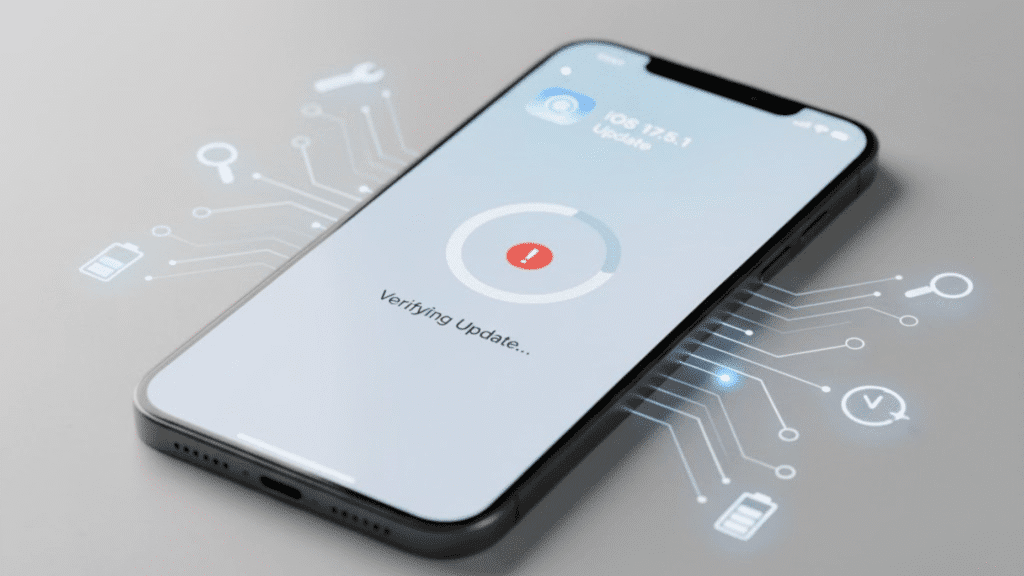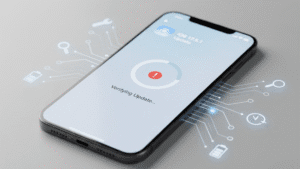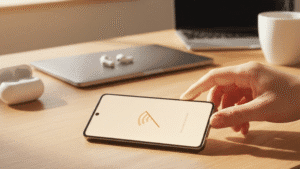Frustrated with your iPhone slowing down right after an update? You’re not alone. Many users immediately think their device is failing, but in reality, this is often a temporary issue caused by software processes and resource management. Before rushing to a repair centre, understanding the underlying causes can save time, effort, and money.
If problems persist, professional iPhone repair may be necessary, but most slowdowns can be resolved at home with the right approach. This article explores the causes of post-update sluggishness and provides actionable fixes to get your device performing like new.
Why iPhones Slow Down After Updates
Updates are designed to enhance your device with new features, improved security, and bug fixes. However, older models often struggle to handle additional processes, leading to temporary slowdowns. Common culprits include background activities, system cache accumulation, and app incompatibility. Knowing the reason behind the lag is the first step to fixing it effectively.
Background Processes and Resource Usage
When you install an update, iOS triggers background processes such as indexing files, syncing iCloud data, and updating apps. These activities consume CPU power and memory, which can temporarily make your iPhone feel sluggish.
Outdated Apps and Compatibility Issues
Not every app is immediately optimised for the latest iOS version. Outdated or poorly optimised apps may freeze, crash, or slow down your device. Updating apps or reinstalling those that consistently misbehave often resolves these conflicts.
Quick Fixes to Restore Performance
Even without professional intervention, there are several strategies to quickly improve iPhone speed. These are particularly useful for users who need a fast, practical solution before considering advanced options.
Restart and Hard Reset
Restarting clears temporary files and closes background apps, giving your iPhone a fresh start. A hard reset can also resolve minor system glitches without erasing data, particularly useful if the slowdown is noticeable immediately after an update.
Manage Storage Efficiently
A nearly full device can dramatically reduce performance. Remove apps you no longer use, clear cached files, and delete old photos or media. Freeing up storage often has an immediate impact on speed.
Reduce Visual Effects and Background Activity
Disabling unnecessary visual effects, background app refresh, and notifications for non-essential apps can reduce CPU load and improve responsiveness.
Advanced Solutions for Persistent Issues
If basic fixes don’t help, advanced strategies may be necessary. Some slowdowns are caused by deeper system issues, which may require professional attention or technical adjustments.
Software Reinstallation
Performing a clean iOS reinstall removes hidden bugs introduced during updates. It is crucial to back up important data before doing this. In cases where data integrity is a concern, professional data recovery services can ensure your files remain safe.
Professional Evaluation
If the device continues to lag, the hardware may struggle with the latest software demands. Consulting an iPhone expert in Adelaide can provide precise diagnostics and repair recommendations, ensuring long-term performance improvements.
Upgrading to Models
Sometimes, older devices simply cannot keep up with software updates. Upgrading to newer models like the iPhone 13 Pro Max or 14 offers faster processors, optimised battery management, and better overall performance. For users who rely heavily on their iPhones for work or daily tasks, this can prevent future slowdowns and enhance productivity.
Ensuring Smooth Performance in the Future
Preventing future slowdowns requires regular maintenance and mindful usage. By adopting a few simple habits, you can keep your iPhone running efficiently and avoid the frustration of post-update lag.
Monitor Battery and Storage
Low battery and near-full storage can exacerbate performance issues. Regularly check your system statistics and clear unnecessary files to maintain optimal operation.
Install Updates Carefully
For older devices, consider waiting for user feedback before installing major updates. Early adopters often report issues that can guide your decision on whether to proceed.
Routine Checkups
Scheduling periodic professional smartphone repair checks ensures both software and hardware are functioning at peak capacity, helping to prevent performance problems before they become severe.
Trusted Services and Customer Feedback
Reading positive reviews from users who have experienced similar issues can provide reassurance and confidence when choosing professional support. Many customers have successfully restored iPhone performance with expert guidance and repair services, ensuring devices remain reliable for years.
Why Reviews Matter
Customer feedback demonstrates reliability, expertise, and real-world results. It helps users make informed decisions and sets expectations for the quality of service.
FAQs
Q1: Why does my iPhone slow down after updates?
- Updates may increase system demands or trigger background processes, temporarily reducing speed.
Q2: Can I fix a slow iPhone without losing data?
- Yes. Restarting, clearing the cache, and managing apps carefully often resolves the problem. Always back up important data, particularly if performing advanced fixes.
Q3: When should I consider professional repair?
- If the device remains sluggish despite DIY efforts, hardware or persistent software issues may require expert intervention.
Q4: Will upgrading to a newer model solve slowdowns?
- Yes. Devices like iPhone 16 Pro Max and 17 Pro have improved processors and optimised software handling, reducing post-update lag.
Q5: How do positive reviews help in choosing a repair service?
- They provide real feedback from users who faced similar issues, helping you choose a trustworthy and effective service.
Conclusion
A slow iPhone after updates is a common problem, but most issues can be resolved through a combination of simple fixes, advanced solutions, and professional advice. From restarting and clearing storage to software reinstallation and consulting experts, there are multiple ways to restore your device’s speed.For consistent and reliable results, professional iPhone repair services provide peace of mind. At Digimob, users can trust experienced technicians to optimise their devices, ensuring performance remains smooth and dependable.



